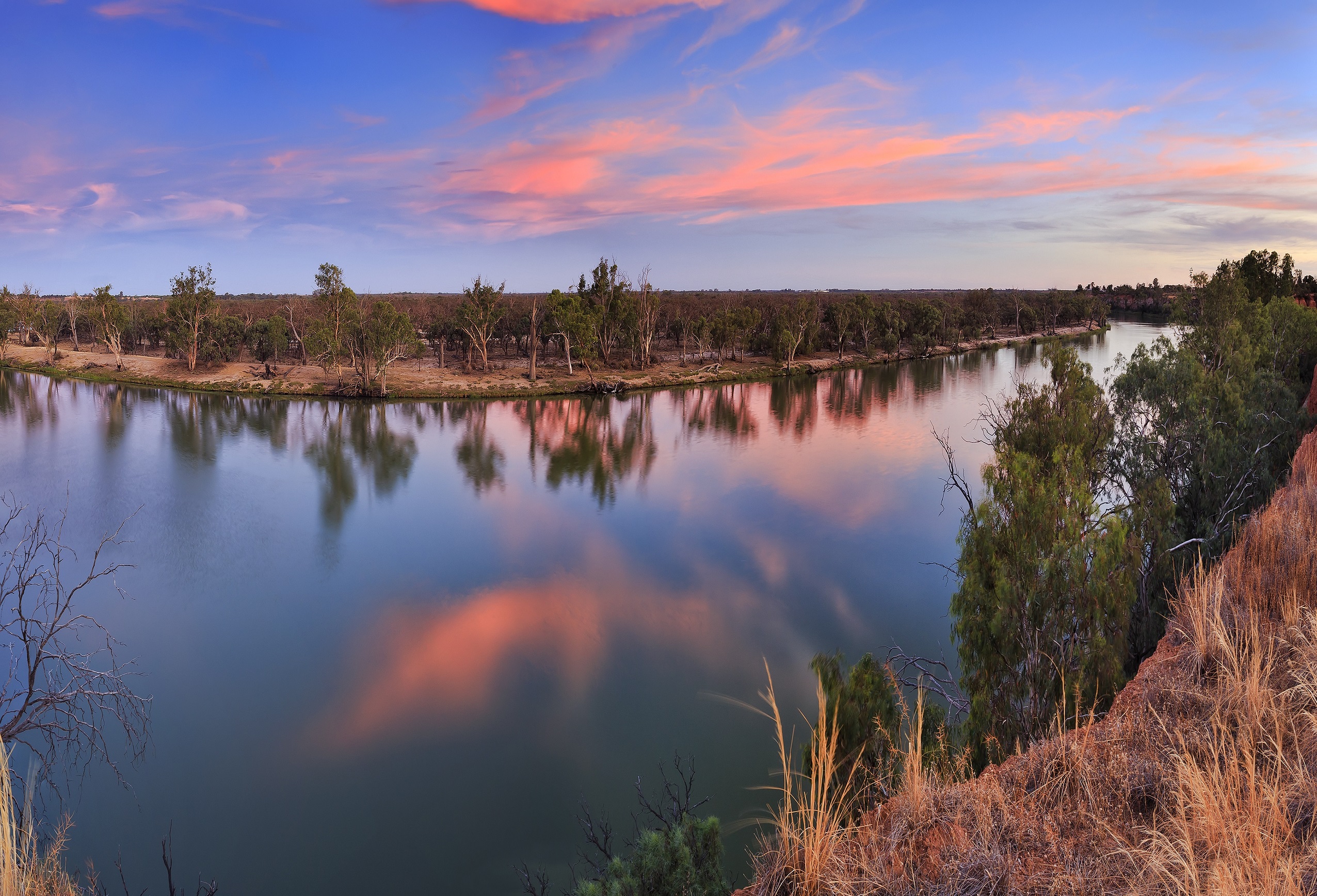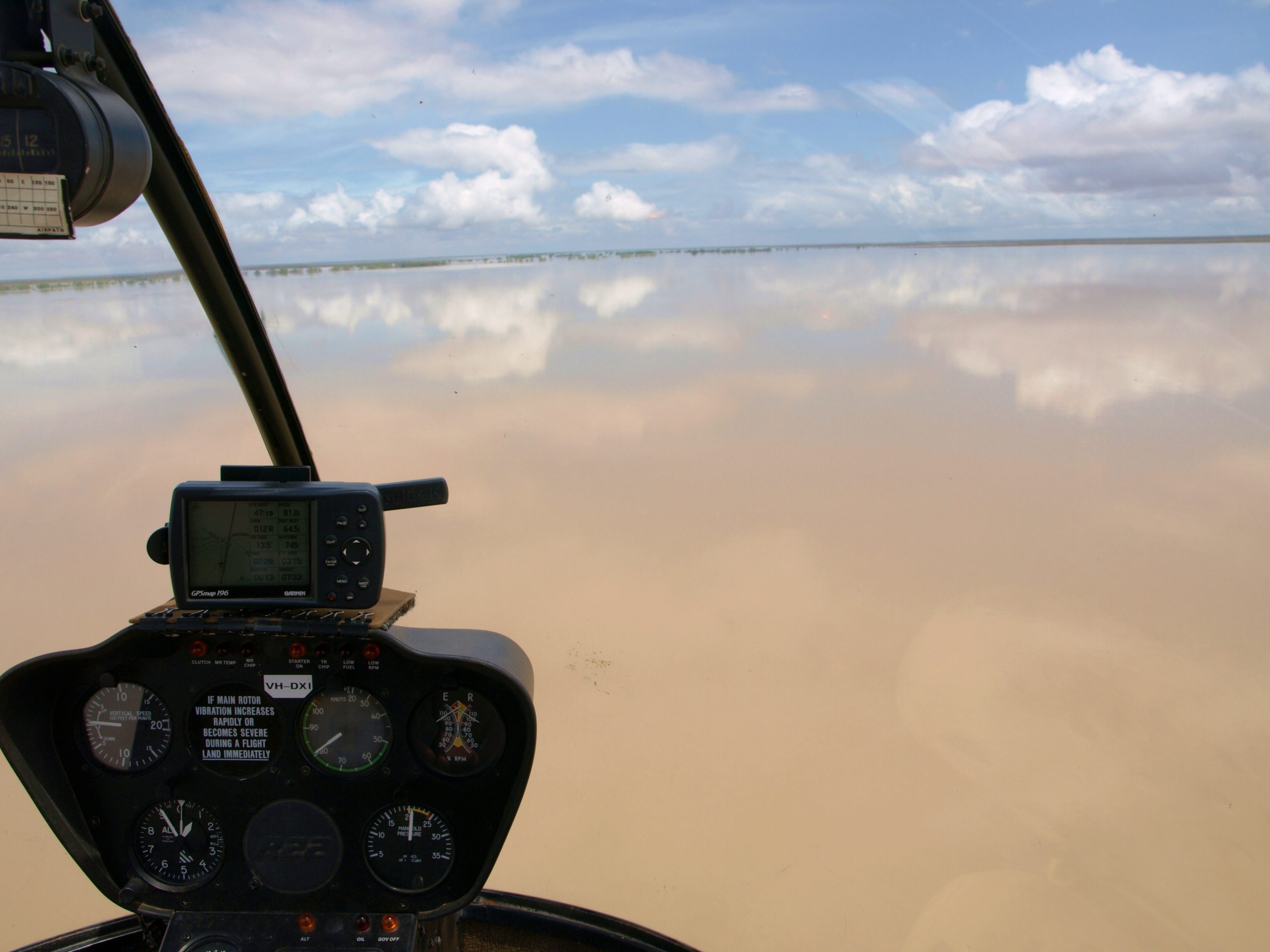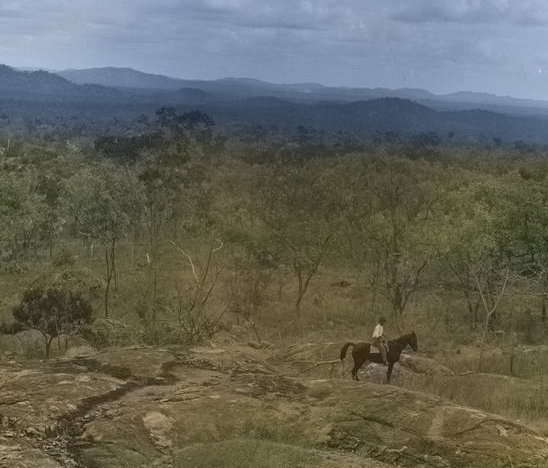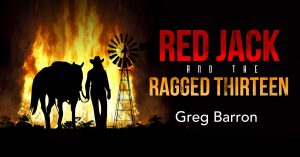
On the long ride to the Territory border, Tom Nugent had plenty of time to think. After months of hard labour on the goldfields, and those life-changing months in Wyndham as a prisoner and free man, it felt good to be back in the saddle, riding past red cliffs, dramatic river gorges, and plains of waving speargrass taller than the horses.
Tom did not ride alone. A little way ahead rode Blind Joe, and behind him, Joe’s two women and one picaninny, all on the one horse. The boy from Borroloola was old enough to ride on his own now, and he rarely kept steady for long.
Tom liked it when the boy rode alongside and asked questions like, where did the clouds come from? Why did the trees know how to grow the right way up? Where did the Queen live? He was sturdy kid, and bright as a pin.
When they reached the Territory border Tom set up camp, then led the boy down to the banks of the Negri. ‘It’s time, and past time, that I gave you a name,’ Tom said.
‘I already got a name.’
‘You need a whitefeller name. I want you to grow up with some learnin’ and able to fit in where you have to. I’m fixing things to have some land of my own, and you’ll be a part of it too.’ Tom reached down to where the clear water ran in a glassy sheet over the stones. He lifted a handful, and smoothed it onto the child’s hair.
‘This aren’t a proper, churchy kind of christenin’, but from now on,’ Tom said, glancing at Blind Joe and his women. ‘This young fellow will be called George. Not just that, but, I’m changing names too.’ He pointed to the east. ‘As soon as I cross the Territory border I’m no longer Tom Nugent, but Tom Holmes. That should keep those wallopers off my tracks for a while.’
Blind Joe thought that Tom putting water on the boy’s head was a great joke, and laughed until his wives led him back to the campfire.
Tom’s second traverse of the Murranji Track was easier than the first, for the endless thickets of bullwaddy and lancewood now held no fears for him. On the third day they found a ‘dropped’ bullock. Tom brought it down with one shot from his Snider rifle, and the five of them ate beef until they could hardly move, drying the rest over a smoky fire, with the dingos prowling out in the darkness, waiting for the bones.
At the Tennant Creek Telegraph Station, Tom refused to tarry, but turned his little party north. He had a map, deep in his saddlebags, and consulted it, along with a compass. After half a day’s ride, the frenetic pace slowed, and Tom began to look with interest at every tree, every gully, and particularly the creeks and part-dried lagoons.
He took careful note of the location of every field of Mitchell and Flinders grass, each stand of cypress, of proud woollybutts, and every hillside soak. They camped at broad waterholes, and at dusk Tom took out an old catgut line. He used a hook baited with dried beef or frogs to bring in catfish and black bream.
They saw bare footprints here and there, and plenty of old cooking fires or abandoned wurlies around the waterholes, but no people. Not yet. Tom looked with interest. He was not a rich man, who could afford to push the people who belonged here out, and bring in his own white workforce. He’d need goodwill to get the locals on board with his pastoral enterprise, and he knew well that the Australian Aborigine was the world’s best natural stockman.
‘This good country,’ said Blind Joe, picking the last morsels from a catfish skeleton, still with ash from the fire clinging to its head and tail.
Finally, three days after they arrived in the area. Tom selected a flat and dry section with access to the creek, and good pasture for horses. It was close to the main north-south track, and central to other sections of the run. There wasn’t much water, but enough for horses, household uses and a vegetable garden.
‘This is it,’ he told his little band. ‘This here is where we stop, and make new lives.’
Blind Joe thought it was funny how Tom spent the rest of the afternoon pacing out little squares, here and there, back and forth. ‘That’s the sittin’ room,’ Tom announced, ‘big enough for a regular party. And here will be the kitchen, right at the back of the house, made of good stone from that hillock yonder.’
‘What you goin’ call this place, boss?’ asked Blind Joe.
‘I’m going to call it Banka Banka,’ Tom said, after the little creek that wound around below the homestead site.
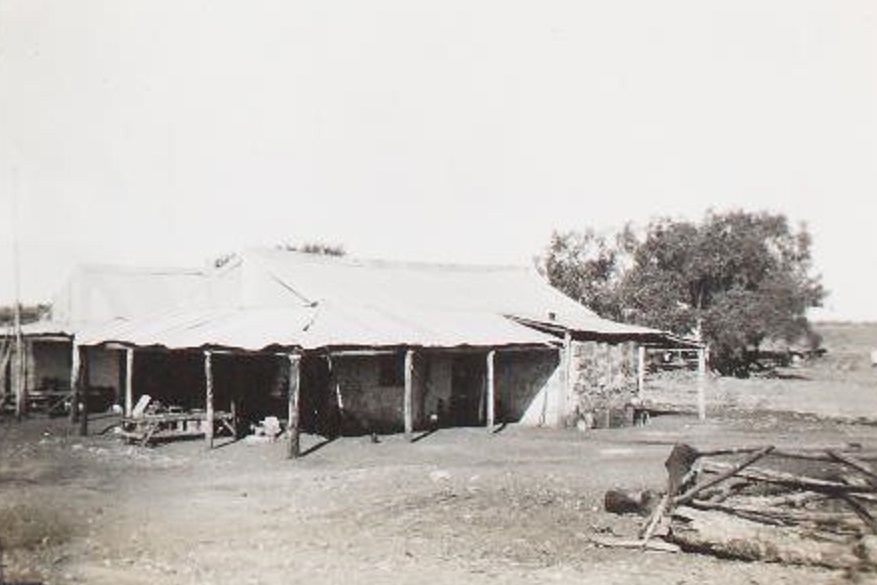
Tom left his new family in camp, and rode like the wind to Palmerston. He was careful of being spotted, even by old friends; camping alone, out of town, keeping his hat low, and crossing the road if he saw a policeman.
First he called on one of the less reputable gold dealers. Then, a wad of cash in his pocket, he visited the Government Lands Office, where he paid a filing fee, and the first five years’ lease, registering the block as Banka Banka Station in the name of Tom Holmes.
The next morning, before leaving town, he stopped to write a letter, scarcely able to contain his excitement.
Dear Miss Byrne
Sorry, for the long passage of time since I last wrote, but towns and post offices have been scarce as chicken’s teeth for a while. My lack of words don’t speak for any lack of good wishes.
There’s big news. I’ve done it, anyway. A place of me own, all legal and registered in my name. (Well, pretty close to my own name, anyhow). It’s called Banka Banka Station. It’s dry country, but with dams built, and yards, it’ll carry more than enough stock to keep me busy, and bring in good money.
I’m riding back today with three new packhorses and enough nails to start bilding you the homestead you can be proud of. I’m hoping you will come and marry me and share this life. Please answer back with your thorts.
Yours Afectionatly
Tom
Back at Banka Banka, Tom laboured like a dog on the homestead. He built a saw pit, enticing a couple of muscled local Warlpiri lads, who came in looking for flour and tobacco, to work for him. As he suspected, they stayed only a week or two, but that was enough to get a pile of timber sawn. Tom laid termite mound floors, and compacted them ‘til they were as hard as granite. He waited a month, then rode to the Telegraph Station looking for mail. There was nothing. He wrote again, and posted it before he left.
Dear Miss Byrne
I guess my last letter must not have reached you. I enclose twenty pounds in cash for you to take the steamer over if you’ll please say you’ll marry me. The Banka Banka homestead ain’t too much yet, but it’ll be a mansion by the time I’m done. It’s a sight, for sure.
I started out with no cattle at all, but a few hundred cleanskins have mysteriously appeared, and now carry my brand. There’s wealth for men with the strength to build it, in this country.
Please write back, soon if you can. Better still come along yourself.
Tom
Tom rode into the Telegraph Station to post the new letter, then hurried back to the half-finished homestead.
The final instalment next Sunday …
©2019 Greg Barron
Whistler's Bones by Greg Barron is available at all good book outlets, Amazon, iBookstore and ozbookstore.com Camp Leichhardt by Greg Barron is also available from Amazon and ozbookstore.com Galloping Jones and Other True Stories from Australia's History is also available from Amazon, iBookstore and ozbookstore.com
